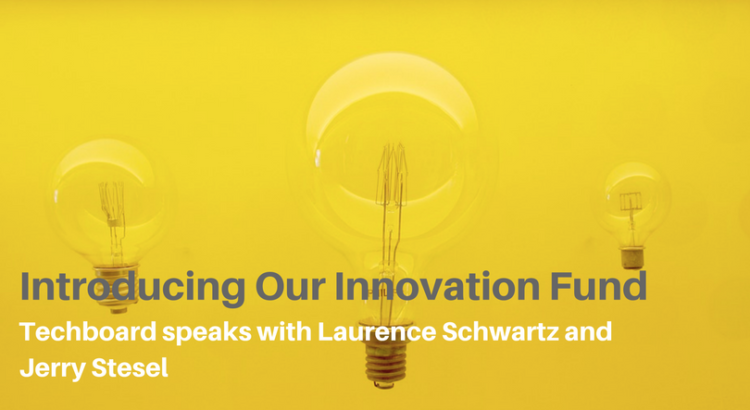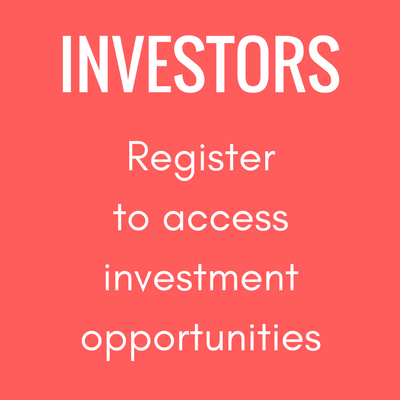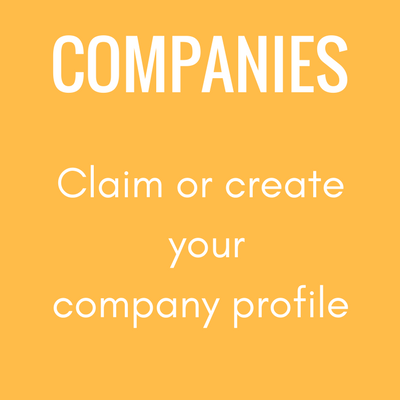Recently, our Techboard correspondent Matthew Parker from MitchelLake, was able to sit down with leading Australian venture capital fund – Our Innovation Fund, LP. Jerry Stesel and Laurence Schwartz (who is also on Techbaord’s Panel of Experts for New South Wales) were only too happy to talk about the creation of the fund, it’s already significant traction, and the broader start-up ecosystem in Australia.
Matthew Parker: Why did you decide to create Our Innovation Fund (OIFVC) and what is its focus?
Jerry Stesel : The team have been mentoring founders and investing in early stage technology companies for a long time prior to setting up the fund with, fortunately, some good success – companies like ZipMoney, OurCrowd, LatAm Autos, CalReply (Ed. recently acquired by ROKT – see our interview), RangeMe, PocketBook and many others. These investments were previously done on a more deal-by-deal ‘syndicated’ basis but we saw the opportunity to raise a fund in mid 2016 and registered OIFVC as an early stage venture capital limited partnership (ESVLP) and launched our first $50 million fund in the back-end of 2016.
Our purpose is to partner with exceptional founders and enable them to realise their dreams, and this is something that we as a team have been doing for years. Everyone in the team has founded a business and has been on the other side of the table, so to speak – so we understand the challenges, the pain, and also the opportunities that come with being a founder.
We’re sector and industry agnostic and are looking to partner with exceptional founders with businesses that have good early signs of market traction, defensible competitive advantages, large addressable markets, scalable paths to those markets and that are at the pre-Series A / Series A funding stage.
Matthew: How have you found OIFVC’s first 12 months in terms of deal-flow, investments and the start-up ecosystem?
Laurence Schwartz: Our first 12 months have been incredibly exciting. There is a palpable energy in the ecosystem and we’re seeing some very inspiring founders and businesses each day. We see 20 opportunities a week on average and have so far invested in 9 businesses, with several follow-ons. We’ve backed some incredible founders and are seeing high-quality opportunities so, mindful of the very real challenges, we’re very positive about the local ecosystem and the ability of Australian-founded businesses to make a material impact on the global market.
Matthew: Why would a founder decide to partner with OIFVC as opposed to another VC?
Jerry: Founders are looking for capital (which is becoming more of a commodity), but more than this, they’re looking for mentorship, and people who have been there before, who have been through the ups and downs and know what it takes and can add material value to the strategic direction of the business.
Laurence: They’re also typically businesses that have found product-market fit and have good early signs of market traction and so they’re coming to us at this stage to hit the accelerator and capture the opportunity. So capital and strategic direction are one piece but we also only invest where we can add material value to the business in addition to capital and a big part of this is customer/partnership introductions, hiring people into key management positions, sharing best practices and general day-to-day business support. A great example of this value-add is EFTsure. EFTsure have a proprietary database, verifying payee details such as account names to account numbers and BSBs. Banks currently don’t check this overlap so if an account name doesn’t match the account details the money will still go to the BSB and account number given. By fraud or error this is a $700 million per year problem. We were able to introduce EFTsure to PwC and assist the company with closing a collaboration agreement that allows EFTsure’s product to be introduced to PwC’s customers – a real win-win.
Matthew: How do you see funds separating themselves as capital becomes more of a commodity?
Jerry: I think we can see lots of the funds going down the path of US “value add” model. As funds get bigger I think bringing in dedicated resources makes a lot of sense. For example, best of breed marketers that can be leveraged across multiple parts of the portfolio. Much of this is happening informally today.
We think about value-add from a proactive perspective and consider four ‘buckets’ where we actively focus on adding value. One is the market side – introducing companies to channel partners and new customers. The second, is on the people side – introductions to good people to work within the business; CFOs, CTOs, Sales Leaders, a range of different people who we have had good experiences with and have shown success in the past. The third is on strategic direction, not just at a board level but from a day-to-day as a soundboard for new ideas. The fourth is on the additional capital raising and M&A opportunities which we have a lot of experience with.
Laurence: It’s worth noting that our direct team doesn’t necessarily take board seats in every business we invest in and we have a large investor base and network that we can access where appropriate as those individuals may have more directly relevant experience and an ability to add additional value. For example with Assigner, a software platform for subcontractors in the construction space that allows them to manage and track their people, compliance obligations, certifications and assets, our nominee on the board was a founder of one of the world’s largest infrastructure owners and who brings excellent experience and value to the business.
Matthew: Where are you consistently seeing the greatest challenge for founders once they’ve raised capital?
Jerry: Talent, then scaling revenue growth. Operational talent and development talent are typically really high on the list and finding quality is consistently a challenge. A lot of the businesses we speak with have their first customers and product-market fit, but they haven’t proven this at scale, so there’s a lot of time spent trying to find the most effective ways of how to grow, whether it be marketing to consumers or creating a sustainable sales team.
Matthew: How do you reach the founders first and make them aware of OIF?
Laurence: 90% of our deal flow is in-bound through a combination of our internal team network and our investor base. Founders typically come to us knowing about the team and how we can add value. These founders have also typically been pre-qualified by people in our network who we trust. They know how we work and what we look for in founders and businesses. We also seek out exceptional founders.
Matthew: What do you believe the right relationship should be between a founder and their investors?
Jerry: There are a number of different elements. We like to invest where there’s an alignment of the 3 Fs – Founders, Fund and Fun. In terms of the first “F”, Founders: as I mentioned before, everyone on the team has been a founder, sat on the other side of the table, raised capital and had external investors. We know what it’s like, so we all want to do the right thing by the founders that we partner with. Ultimately you’re not able to succeed in this business if founders don’t have a good experience working with you. From our perspective that means doing what we promise, walking the talk and adding material value and delivering on what we’ve committed to. We stick to our purpose, knowing that when our founders do exceptionally well and realise their dreams, so too will the fund and our investors. The second “F” is Fund – delivering returns to the investors who have entrusted their money to us, a trust we take very seriously. Then we are also fortunate to be able to choose the founders we want to work with based on founders with a cultural fit and those who we enjoy working with – putting the “fun” in “fund”.
Laurence: Drilling into all of these pieces in more detail, from our perspective its transparency, honesty and integrity. Founders are trusting us with part ownership of their business and we’re trusting them with our and our investors’ money and our time, efforts, network and resources. It’s in our best interest to help enable these businesses grow and we’re constantly looking for opportunities to add value, for example we’ve helped businesses with pitches to potential customers, budgets and hiring, contract negotiations – we never knock back a request and we expect our founders to have that open relationship where they can lean on us for support and value-add.
Matthew: You’ve talked about investing in founders – how do you assess quality founders?
Jerry: Ultimately we’re investing in people and their ability to execute a business plan. Put the same plan in front of two different teams and you will get two drastically different outcomes depending on the people. Ultimately it comes down to finding courageous, resilient people with good work ethics, integrity and a passion for the problem they’re trying to solve as well as deep domain expertise. Another important piece we look for is a founder that displays coachability – founders that think they have all the answers we typically find won’t be as successful as founders that are adaptable and open to learning.
Mathew: How do you assess the opportunity for investment in Australia vs the rest of the world?
Laurence: We’re predominantly focused on Australian-based opportunities and spend 90% of our time exploring these. Having said that, we do see a lot of offshore opportunities, particularly out of the US and Israel. The quality of the deal flow locally is high and the momentum in the ecosystem is strong. Ultimately the Australian market is small relative to the global economy and Australian businesses should aim to compete globally, rather than exclusively locally. If they don’t, they’ll get swallowed. Australian technology businesses (particularly in the B2B SaaS space) have had a lot of success globally – think Instaclustr, Campaign Monitor, Atlassian and Enboarder – and we’re very positive about the outlook for Australian tech businesses.
Matthew: What advice would you give for founders about to go down the process with OIFVC?
Jerry: It’s pretty simple – be honest and transparent. We’re looking for founders who have vision and purpose and who align with our ‘Three F’s’. The ideal opportunity for us is a company with a backable founder, a product with market traction, a large global market opportunity and a team that knows how to celebrate the wins along the journey.
View Our Innovation Fund’s Website
See More Techboard Interviews:

Matthew Parker is a Senior Consultant at MitchelLake Group in Sydney. Matthew connects great people, with great stories, with great businesses.



